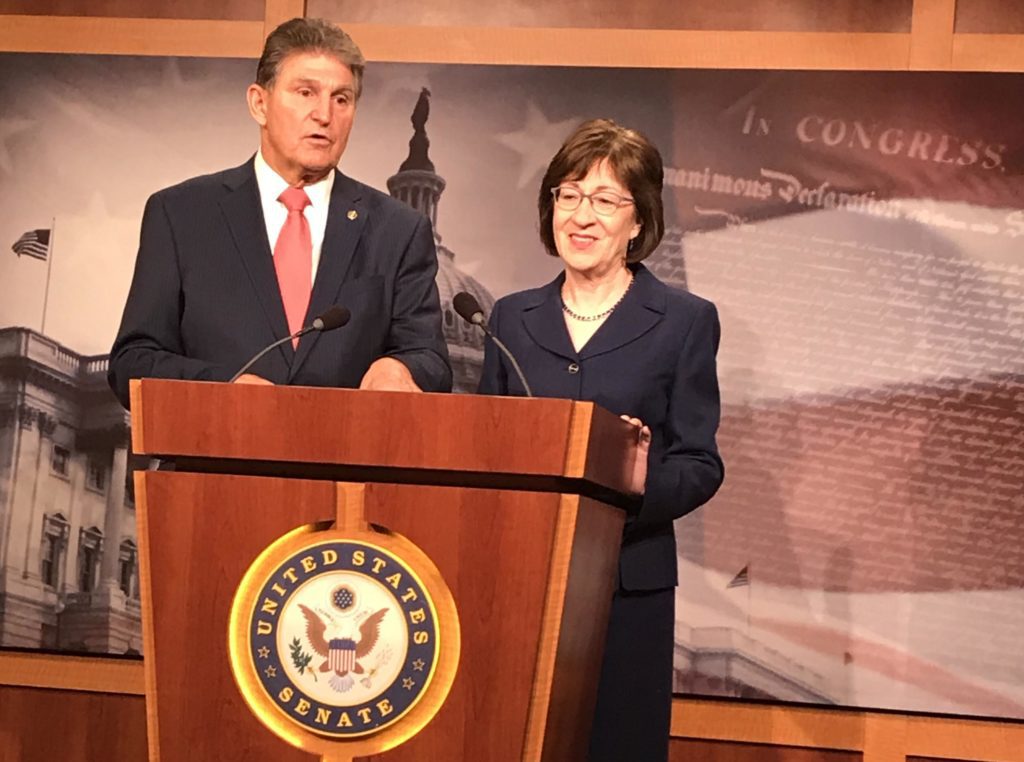Senate Votes to End Government Shutdown
By • January 22, 2018 0 857

U.S. SENATE, Jan. 22, 2018, 2 p.m. — Senate Democrats just blinked. Thirty-three of them.
Around 2 p.m. on Monday, Jan. 22, it was clear that Democrats helped the Senate reach the 60-vote threshold to end the government shutdown. The final procedural vote to end the debate was 81 to 18.
A final vote on the agreement between Senate Majority Leader Mitch McConnell (R-Kentucky) and Senate Minority Leader Chuck Schumer (D-New York) for a continuing resolution or CR to fund the government through Feb. 8, is expected to take place by 5 p.m., maybe earlier.
The deal to keep the government funded at current levels does not include any agreement about the DACA recipients — some 690,000 immigrants who came into the country before age 16 and were protected temporarily from deportation by a June 2012 Obama administration executive order called Deferred Action for Childhood Arrivals. But senators agreed that they would take up legislation that could codify a permanent solution in a DACA replacement bill once government opened again.
Democrats had held out for much more. The DACA order had been rescinded by President Donald Trump and protections are set to end March 5. While that does not mean a mass round-up of former DACA recipients (aged 18 to 30 years old), they still would be vulnerable to deportation at any time. The urgency to protect the young adults, some of whom had been in the country since they were infants, pushed Sen. Schumer to support a Democratic filibuster that led to the government shutdown on Saturday, Jan. 20, when no agreement about DACA could be reached.
Meetings between senators took place all weekend. They began on the Senate floor late Friday night, Jan. 19, when groups of eight to 12 senators from each party huddled together on the floor in sight of the C-SPAN cameras.
“All the talks were very optimistic,” said Sen. Joe Manchin (D-West Virginia) at a TV press briefing Monday after the vote to end debate. There was much that both sides agreed to.
“One essential issue was the continuance of funding for a children’s health program that affects some 90 million American children,” said Sen. Susan Collins (R-Maine) at the briefing. “Ninety thousand are in Maine.”
It was generally agreed that the essential agreement came down to trust — whether a promise by Republican leaders to take up the DACA situation and other immigration matters after government funding was continued would be honored or not. By Monday afternoon, Jan. 22, it was apparent that the majority of Democratic senators decided they could trust Majority Leader McConnell.
Sen. Lindsey Graham (R-South Carolina), who had held out against his fellow Republicans to end the debate until the immigration issues were resolved, expressed the urgency he felt to settle the DACA situation. “It needs to be done before the State of the Union Address [on Jan. 30],” he told reporters.
The agreement to end the shutdown — actually an agreement to continue funding the government under the current budget — was met by mixed emotions by many. Progressives Democrats felt that their leadership had caved. But many people who work for government and cover government as reporters were relieved. It means government services will resume for at least another three weeks.
For reporters crowding the Senate gallery and Senate staffers, it also meant the Senate cafeteria would open again. Hungry congressional staff were met with shuttered gates at the major eateries in the Capital office buildings today.

